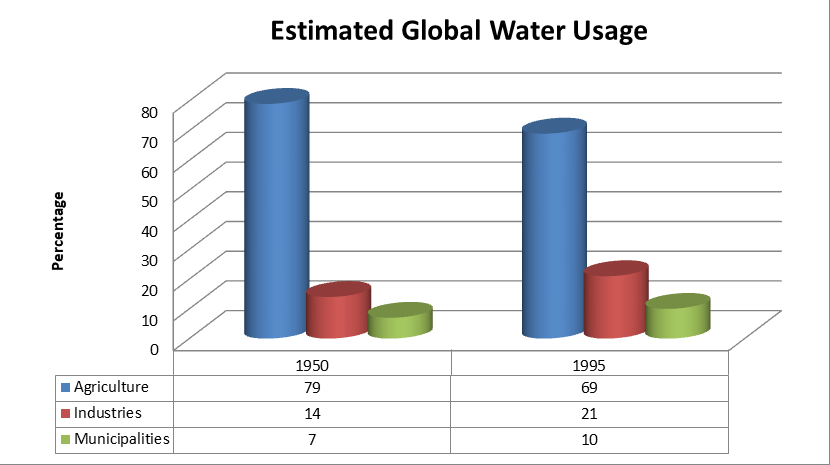

Place an offer to sell or buy on the platform and a large number of buyers or sellers will automatically be contacted for you.


Agriculture policies
must focus on water management practices to increase the productivity, promote
equal access of water and thereby conserve the resource.
Over the last half-century, significant growth in the
productivity gains in the agriculture is seen. Due to the Green Revolution technologies
and use of high yield varieties, improved water management helped boost
productivity by almost 100% since 1960.
Next 20 years will throw up new challenges. As the
population grows the agriculture needs must be covered due to changing patterns
of demand for food and poverty in rural areas, and compete for scarce water
supply. To meet these requirements agricultural policies must encourage water
management to promote productivity, promote equitable access to water management
practices and conserve the resource base.
Water for crops - The
water consumption of humans and animals is relatively small. The average human
drinks about 4-5 liters a day. But producing the same person's daily food can
take up to 5,000 liters of water. That is why the production of food claims
biggest share of water withdrawn from natural resources for human use, or about
70% of global withdrawals.
If
water management practices are maintained then the pressure on the resources
will be significantly reduced, leaving a scope for transfer of water for other,
non-agricultural uses. Today farmers are increasingly involved in decision
making and in bearing the costs of operation and maintenance of irrigation systems.

One of the first priorities of modernization is to assess
physical conditions of irrigation system and identify the practical examination
for moving towards more feasible and reliable water delivery service.
Ultimately, it is the users who decide the level of service they need and are
willing to pay for.
Negative External
Factors - But water management is not simply about crop production, while
the specific objective is to provide more reliable and adequate water supply
for crops. Management will always have significant impact on economic
activities, environmental processes and people's health.
Agriculture is under pressure to reduce the impact of its "negative external factors", particularly those associated with the
applications of fertilizers and pesticides.
Policy Interventions - Policy intervention can help "re-invent" agricultural water management. It
recommends a strategic approach to enhance the crop productivity by wisely
using the water resource. Individuals should assure stable management with land
and water resources, meaning the water use rights that are flexible enough to
promote comparative advantage in food and cash crops. Modernization strategies
should transform rigid systems into much more flexible service-delivery
systems.